Hybrid Small Size hpcResource Project
The High-Performance Computing systems play more and more important role in our society thanks to the increasing size of processed data and the higher computational demands. These aspects could be identified in many areas of the daily life such as medicine, weather report, traffic monitoring or industrial environment. High computational power together with the high efficiency of HPC systems is effectively solved by the usage of coprocessors where there are hard limits on a number of cores. These HPC systems are widely used mostly for research purposes. Despite these effective research results applied in real applications, the problems are still quite complex to solve help by a personal computer, and there is no possibility to use HPCs. Moreover, the real-time applications are composite concerning the optimal algorithmic answer. Namely, thanks to the different architecture of the processors, you can identify different segments of the code where one type of architectures is more appropriate for the optimal performance of running the algorithm in contrast with the other types. It would be very useful a hybrid micro size HPC equipped with different type of coprocessors, but there are some other barriers to the lack of the operating conditions. The plan is to build a hybrid micro size HPC equipped with two Xeon Phi and two NVidia Cuda coprocessor cards installed in a regular size of personal computers preserving portability, where the cooling is served by the custom-designed liquid cooling solution. This hybrid micro HPC can support the research, the real-time applications, visualization, and demonstration of the results in small-roomed places without air-conditioning, when the problem complexity is still enough demanding the high performance such as in surgery. It also enables the creation of that hybrid algorithmic solution which can make a smart selection of the achievable processors based on requirements. Among the planned field of applications, there are the mathematics, bioinformatics and medical treatment which contains the research and application of the fusion models, optimizations, image-, video-processing, and visualization. The development and research are supported by Nvidia and Hungarian National Talent Program.
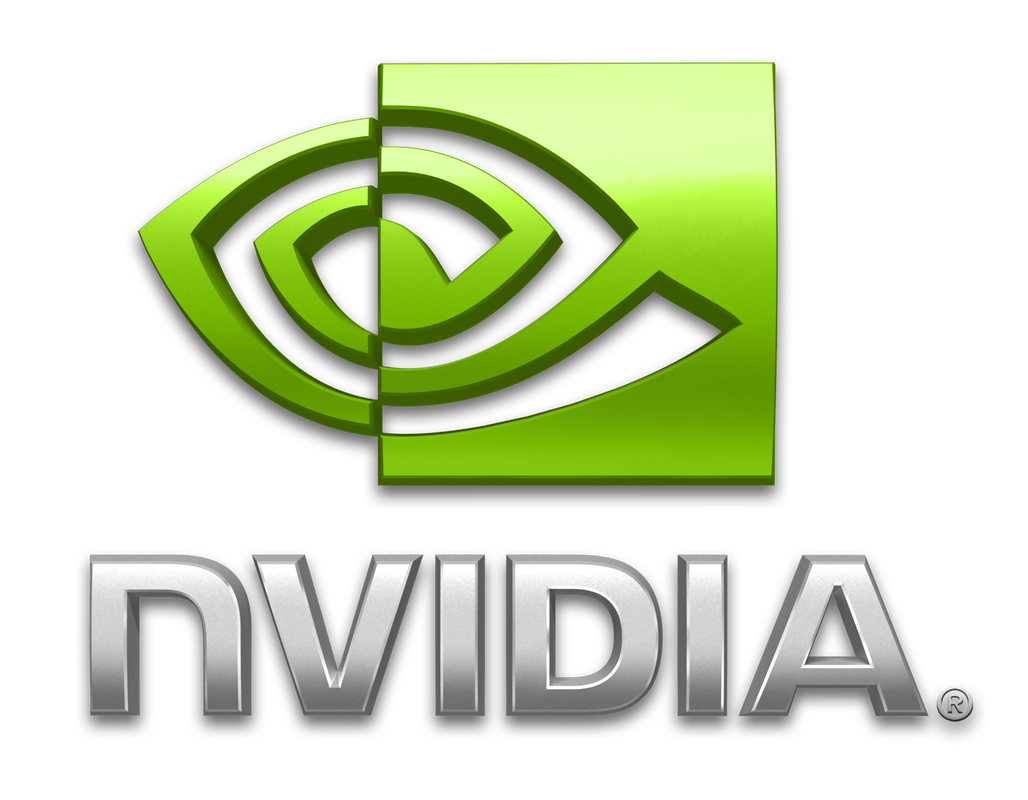

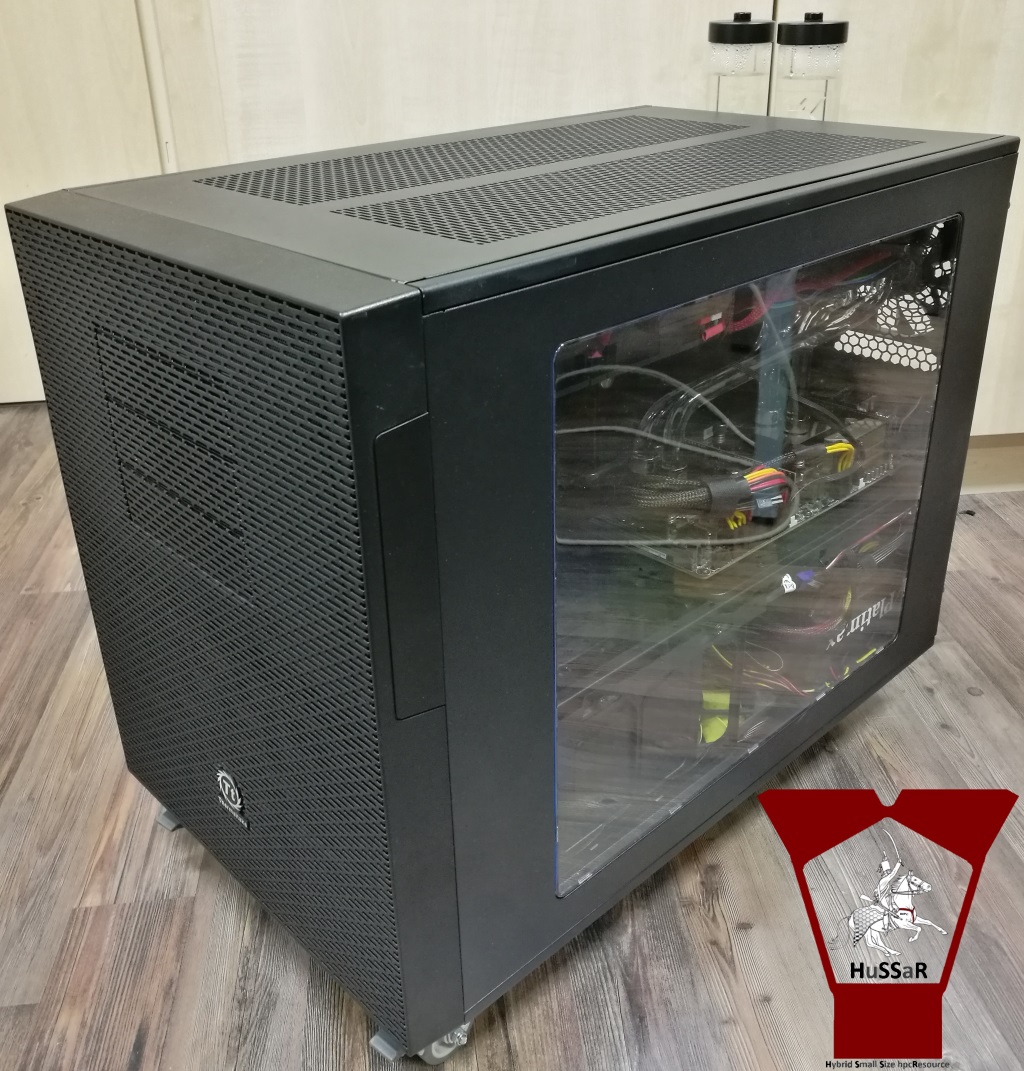
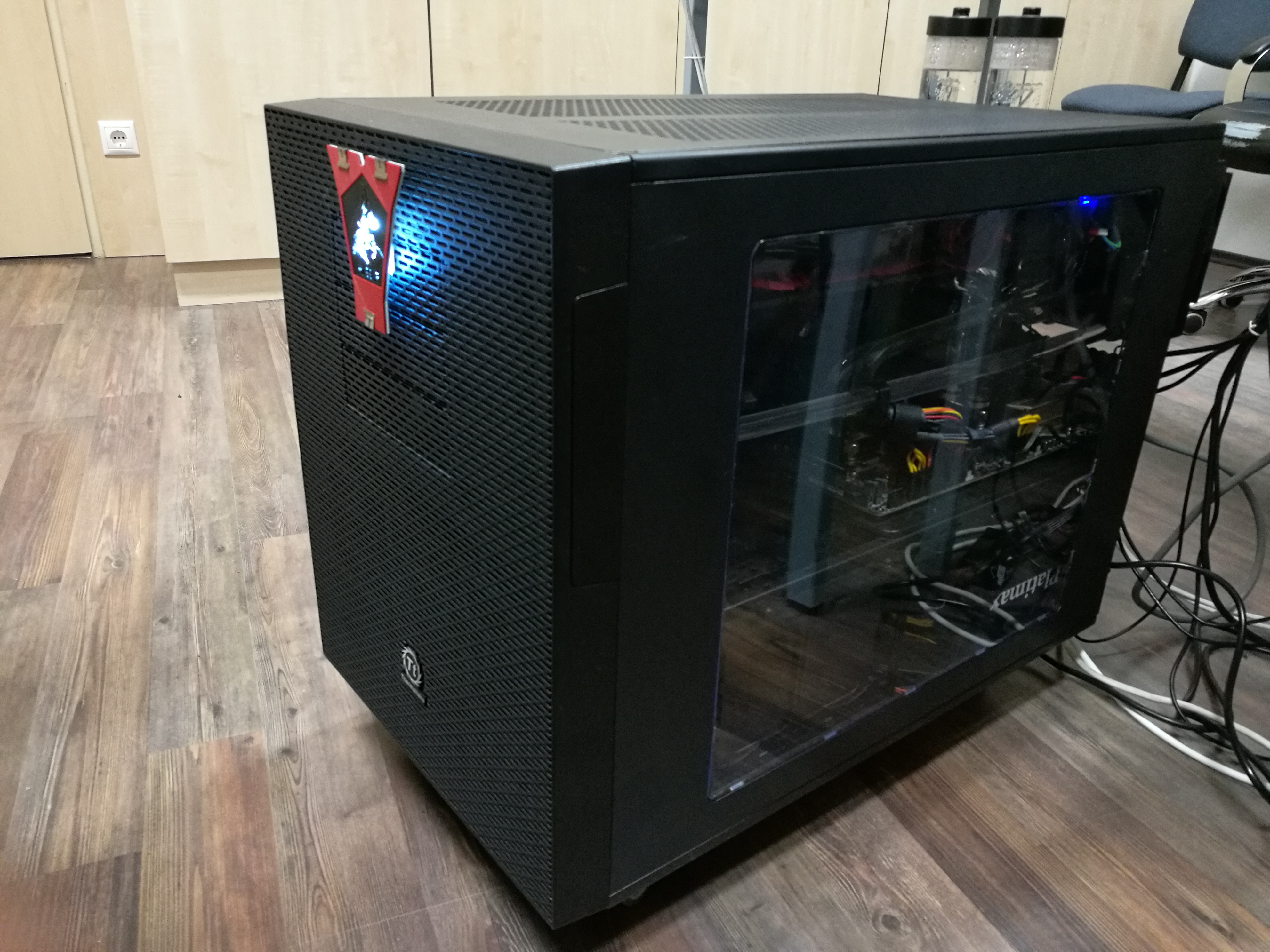
Develpoment Progress:
- 09.01.2016-12.31.2016: Planning/ordering (parts) period.
- 01.01.2017-03.31.2017: Building period. (Including liquid cooling)
Milestones:
- Modification of the case.
- BIOS updates for cooprocessord card compatibility.
- Manufacturing the apropriate angled tubes.
- First fill with liquid.
- Some modifications, and replacement in liquid components.
- Finall refillment with additives.
- 04.01.2017-05.14.2017: Setup software environment.
- 05.15.2017-2017.06.01: First tests.
- 06.02.2017-10.31.201: Trials software configurations and working conditions.
- 11.01.2017-12.31.2017: Cooling configurations are extended to improve cooling performance of the PHI cards:
- Disseminations: - Wigner GPU Day 2017 Conference presentation
Milestones:
- Windows + Intel MPss library + Intel Parallel and System Studio + PGI + Resource Managers.
- Linux + Intel MPss library + Intel Parallel and System Studio + PGI + Resource Managers.
Milestones:
- current configuration:
Number of cores: 6274 (130 Intel + 6144 Nvidia Cuda)
Number of threads: 6632 (488 Intel + 6144 Nvidia Cuda)
- Patent pending: The patent of the HuSSaR machine, name and logo are sended to Hungarian Intellectual Property Office.
- 3D printed logo (will be fix on the front of the HuSSaR machine):
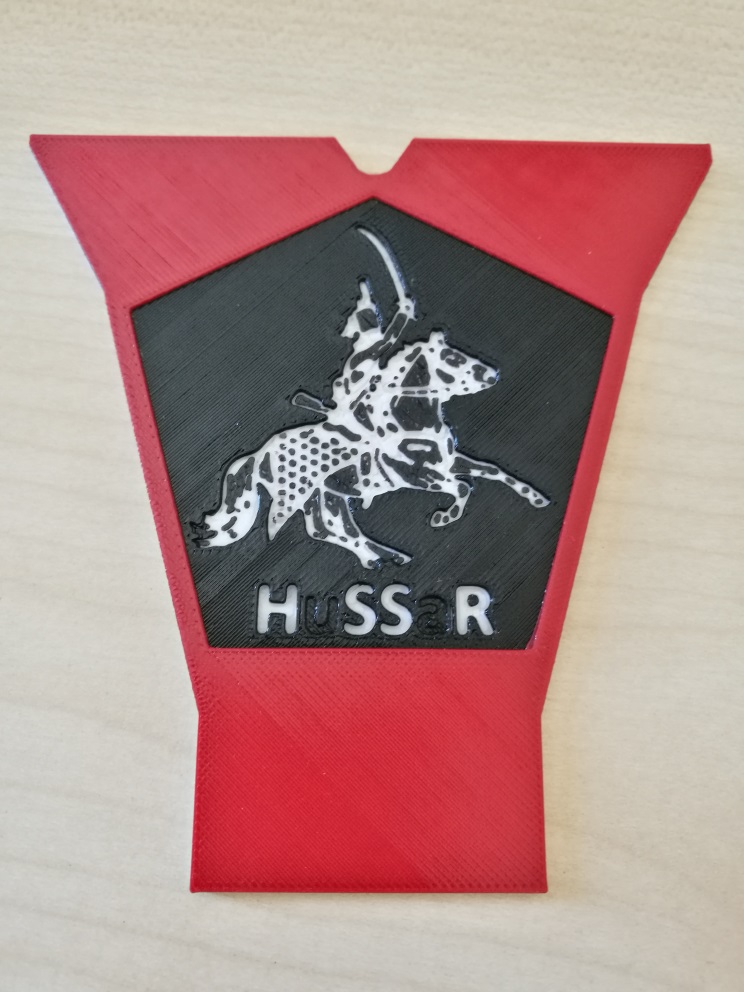
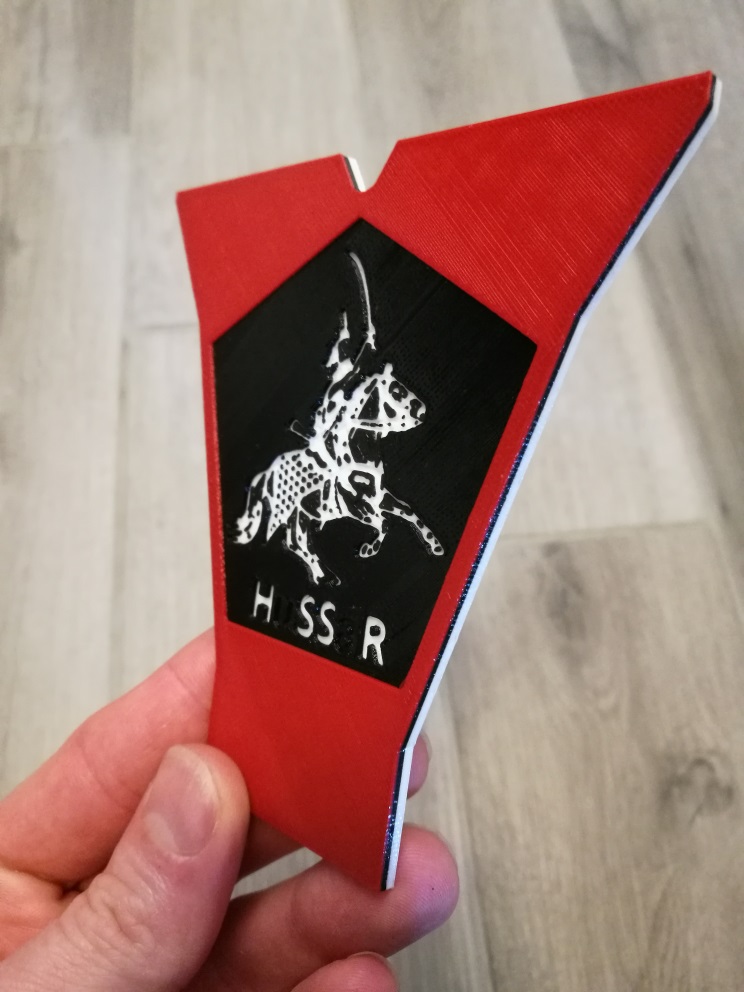
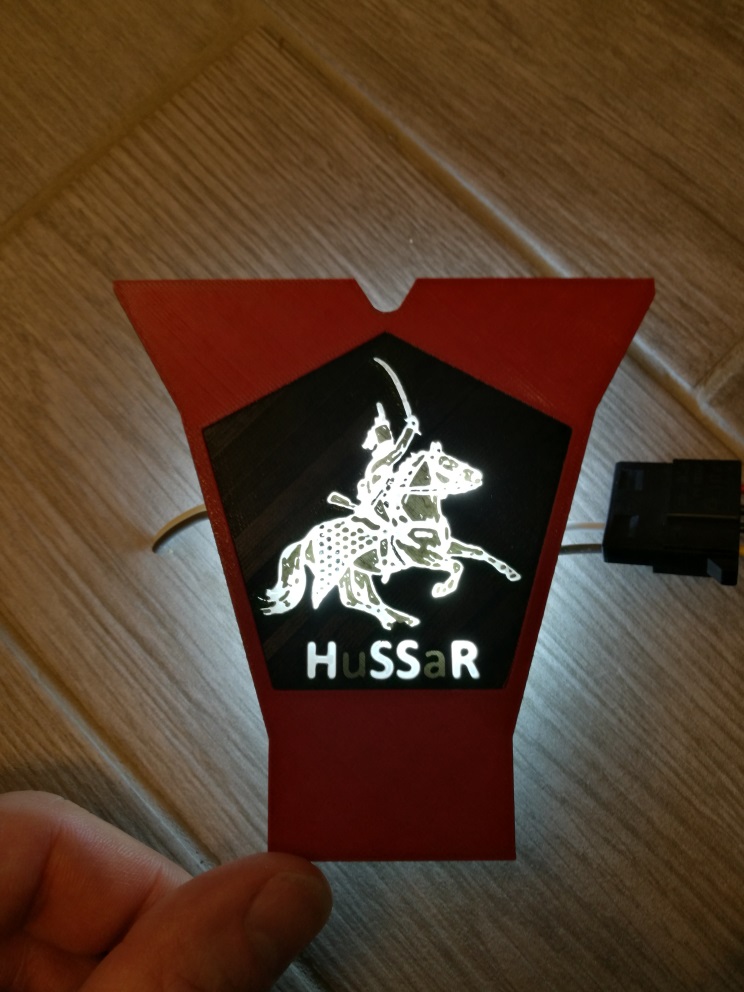
- Hunagrian version logo:
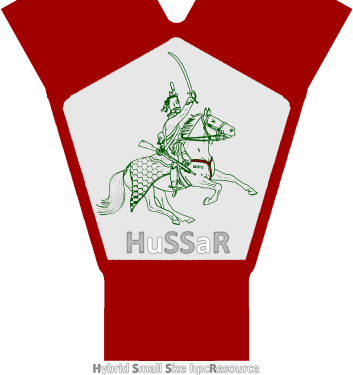

- LinkedIn Posts:
- https://www.linkedin.com/feed/update/urn:li:activity:6284005049886736384
- https://www.linkedin.com/feed/update/urn:li:activity:6284014463968518144
- Instagram:
- https://www.instagram.com/addylaszlokovacs/
- Youtube channel:
- https://youtu.be/Ho795IY36zY
- https://youtu.be/zWOWonhKhuQ
- https://youtu.be/5OzHyl8Oko0
- https://youtu.be/jexDWCztQvw


 Aliquam lacinia metus ut elit. Aliquam lacinia metus ut elit. Suspendisse iaculis mauris nec lorem. Donec leo, vivamus fermentum augue praesent congue rutrum.
Aliquam lacinia metus ut elit. Aliquam lacinia metus ut elit. Suspendisse iaculis mauris nec lorem. Donec leo, vivamus fermentum augue praesent congue rutrum. Lajos Hajdu is a professor at the Institute of Mathematics, University of Debrecen. His main research field is Number Theory, but he is also interested in various applications of Discrete Mathematics, in Digital Image Processing and in Discrete Tomography. For details see his homepage at http://math.unideb.hu/hajdu-lajos/en.
Lajos Hajdu is a professor at the Institute of Mathematics, University of Debrecen. His main research field is Number Theory, but he is also interested in various applications of Discrete Mathematics, in Digital Image Processing and in Discrete Tomography. For details see his homepage at http://math.unideb.hu/hajdu-lajos/en. Suspendisse sit amet tellus in eros bibendum condimentum. Donec leo, vivamus fermentum nibh in augue praesent a lacus congue rutrum.
Suspendisse sit amet tellus in eros bibendum condimentum. Donec leo, vivamus fermentum nibh in augue praesent a lacus congue rutrum.  Aliquam lacinia metus ut elit. Suspendisse iaculis mauris nec lorem. Donec leo, vivamus fermentum augue praesent congue rutrum.
Aliquam lacinia metus ut elit. Suspendisse iaculis mauris nec lorem. Donec leo, vivamus fermentum augue praesent congue rutrum. János Tóth received his MSc degree in Computer Science from the University of Debrecen, Hungary in 2010. Since then, he continuously participates in R+D activities. From 2014 he is a full-time student of the Doctoral School of Informatics of the University of Debrecen. His current research interest lies in the large-scale optimization of fusion-based systems.
János Tóth received his MSc degree in Computer Science from the University of Debrecen, Hungary in 2010. Since then, he continuously participates in R+D activities. From 2014 he is a full-time student of the Doctoral School of Informatics of the University of Debrecen. His current research interest lies in the large-scale optimization of fusion-based systems. Obed Gulyás is a student at Debrecen University at the Faculty of Informatics. He graduated with a bachelor’s degree in July 2017, and he is a master’s student in Business Informatics nowadays. His main interest lies on customed built computers, involving designing and programming.
Obed Gulyás is a student at Debrecen University at the Faculty of Informatics. He graduated with a bachelor’s degree in July 2017, and he is a master’s student in Business Informatics nowadays. His main interest lies on customed built computers, involving designing and programming.  Roland Kovács received his BSc degree in Computer Science from the University of Debrecen, Hungary in 2018. During the studies, he participated in several projects such as Game Development with Deep Learning, but mainly in Digital Image Processing like Melanoma detection in dermoscopy images. He works for ambulatory ECG Holter and Resting and Stress Test System manufacturer now.
Roland Kovács received his BSc degree in Computer Science from the University of Debrecen, Hungary in 2018. During the studies, he participated in several projects such as Game Development with Deep Learning, but mainly in Digital Image Processing like Melanoma detection in dermoscopy images. He works for ambulatory ECG Holter and Resting and Stress Test System manufacturer now.